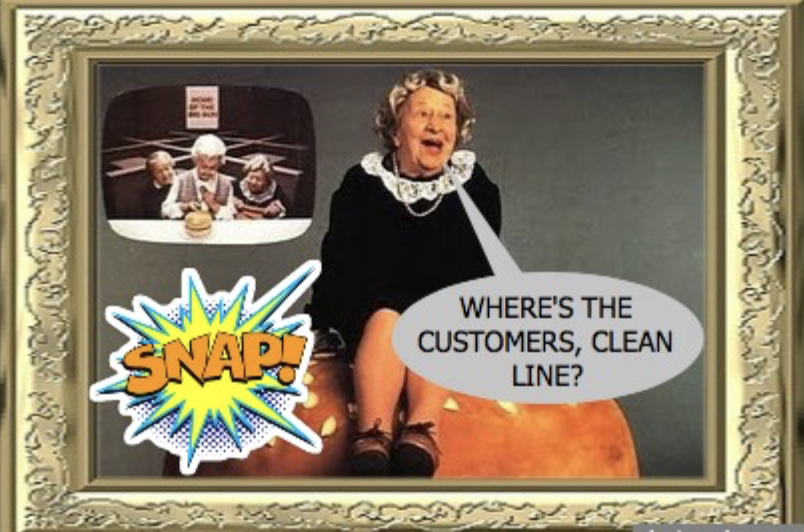From the first time I read about Clean Line, it has always struck me as a bunch of clueless knuckleheads pretending to be a transmission utility company. It's not like anyone at Clean Line had any experience whatsoever building regional or national transmission lines. The most the staff could claim is that they used to work for a wind company that built some generation tie lines that relied on voluntary landowner easements. That's a whole entirely different animal.
I'm not sure they actually fooled anyone with their "monkey see, monkey do" imitation of real utilities. But what ensued was a hugely expensive comedy of errors that has ended in failure.
Mistake #10: Greenwashing
Green is good. Green is beyond question. Everyone loves green! If we just tell everyone our transmission line is for "clean" energy, everyone will support it!
Wrong.
Transmission lines are open access. There is no such thing as a "clean" line. Once a transmission line is built, any customers can use it. In Clean Line's case, it needed to find customers to use its line before it could be built. Clean Line tried for years to find customers for its transmission capacity, first proposing that its customers could be wind generators, or utilities who wanted to connect with wind generators. When that didn't work, Clean Line started trying to sell its service as an "arbitrage opportunity" to move fossil fuel power between electric regions.
"Clean" Line? What is that? All the "clean" seemed to wash off the line when push came to shove.
And where did it get them? Nowhere. Clean Line wasn't useful as an "arbitrage opportunity" either. There simply weren't any customers.
So, attempts at greenwashing the transmission proposals were a mistake. Greenwashing only succeeds in selling cleaning products, not transmission lines. When the targets of the greenwashing are knowledgeable, greenwashing fails. While Clean Line sold its product to clueless environmentalists in cities far, far away from its proposed transmission lines as "clean" and "green," ultimately those who fell for Clean Line's greenwashing didn't matter. The only ones who mattered were the utilities to whom Clean Line attempted to sell its transmission capacity. Greenwashing didn't work on them because they knew the truth about transmission and Clean Line didn't provide any benefit for them. Likewise the landowners in the local communities. Clean Line destroying their properties in order to provide greenwashed transmission capacity to utilities hundreds of miles away didn't work either. Landowners spoke their opposition loud and clear and fought Clean Line every step of the way.
Greenwashing proved to be a poor substitute for proposing a transmission need to regional grid planners and getting them to agree and add it to their plan. It turns out there really wasn't any need for a "clean" line and being "green" really didn't work to convince any customers to buy capacity.
Tune in as we count 'em down over the next ten days, folks! And don't be shy about sharing your own personal Clean Line mistakes in the comments. It's our own little virtual Block party!

 RSS Feed
RSS Feed